In the early morning hours of a hushed January day, I plod down the wooden stairs to my basement laundry room where I’ve set up a temporary seed starting station. LED lights suspend from a dropped ceiling above a well-used wooden table. Beneath the radiant light rests a simple seed starting tray: a plastic tub, cell trays, and a clear lid. Specialized soil tenderly warms the content of each black tray. Between the warm, damp soil and bright grow lights above sits a bed of eucalyptus seeds waiting to begin their life as a plant.
Eucalyptus seeds are very tiny — so tiny I can’t distinguish them from the rich color of the soil in which they sit. Like many other flowers that start out as the tiniest of seeds (snapdragons, poppies), eucalyptus needs a precise growing environment, and to germinate, they require light. For this reason, I’ve placed each seed atop soil before gently pressing it into the loamy surface with my finger, ensuring none falls too deeply beneath the growing medium.
Everyday I will return to this seed station, sometimes three times a day, to monitor their progress. And for the first few days I won’t see any evidence of life. Seeds unfurl into life at a granular level, and this process remains beyond my perception. Still, I will return again and again to the trays, waiting patiently for any sign that eucalyptus has begun growing.
Visiting the seed station frequently may seem futile. Simple biology tells me nothing will sprout in the hours immediately after planting these seeds. Yet compulsively, I return to check on them. Why?
During the pandemic, author Susan Cain embarked on a personal journey to better understand her own complex connection to sad music, what she calls “funeral music.” Her quest to unravel how longing, sadness, and melancholy inform human experience became the basis of her book, Bittersweet — a candid portrait of human determination to ”create a life worth living.” For some, this includes developing an affinity for the liminality between sweetness (think joyful exultation) and the bitterness (think searing disappointment) of life. Bittersweets recognize sorrow as it nestles within (and despite) exquisite elation — sorrow and happiness become indelibly linked. Grief joins exhilaration. People who feel the weight of both — despair intertwined with jubilation — recognize that “after all the grief and loss and disruption, you are still — you will always be — exactly who you are.”
I thought about Cain’s sentiment as I read a favorite passage from Because of Winn Dixie to my daughter this week. Two characters contemplate how candy, the epitome of sweetness, can also taste like sadness. Together, they marvel at life’s ability to produce candied moments tinged by sorrow. How does one bake longing into a sugared hard lozenge?
I think I know about this yearning. I feel it most in winter months, when I ache to garden. I feel it in late autumn, too, after the flowers die back, their shriveled blossoms forming brown orbs where vibrant color used to be. I miss the garden chores, the bouquets, the pollinators, the sounds of birds singing at dawn. Gardening is tinged with desolation.
In the weeks leading up to the holidays last month, I noticed a renewed yearning to read. I queued books at the library, jotted down recommended stories on post-it notes placed around the house, and recorded possible new book titles on my phone as I scrolled through social media.
And then a shift occurred. I stopped compiling books I wanted to read and began compiling books I wanted to share with my dad. While I can’t pinpoint the singular moment when my book list became his, I do recall grappling with the idea of finiteness. He lives as parents do: once robust, but soon aging. The book list, as I began calling it in my head, offered an opportunity to reckon with his mortality by sharing a seabed of stories together.
Reading became urgent. Find stories about teachers, I told myself. Collect mysteries. Add historical fiction. Discover titles beyond the best seller list. Because he was a reading teacher: Hamnet. Because he loves thrillers: In a Dark, Dark Wood. I became gripped by purpose: get these books into my father’s hands as quickly as possible.
Suddenly, my task felt overwhelming. The world is wide with books to read; how many more times do we get to ask each other, “So, what did you think?” Compiling books titles for my father produced something morosely exquisite. The book list exists because someday we will not.
A few seeds I planted this month will crack their exterior shell and a delicate green shoot will emerge, growing up toward the lights suspended above. But other seeds will remain unchanged, not viable.
Of the seeds that do survive germination, a handful will wither in their nascent stages of growth, doomed by common threats to plant life. Dampening off, a fungal condition, easily kills tender plant shoots. So does irregular watering and fluctuating temperatures.
I visit the seeds throughout the day, enveloped with hope that these seedlings will grow to produce a cut flower garden thick with tangy eucalyptus plants ready for harvesting. The disappointment of losing seedlings doesn’t outweigh the pleasure of enjoying fresh eucalyptus in summer bouquets. And yet, the disappointment never really disappears, either.
Growing a garden requires compassion and ferocity. Wildlife, erratic weather patterns, and human error can all inhibit how a garden grows. Likewise, cultivating a connection with loved ones warrants tending both the bitter and sweet aspects of human relationships. After all, love collides with death. Loss co-exists with life. Growing flowers gives me the best of both extremes: ephemeral blossoms only lasting a handful of days still produce moody bouquets that rupture ordinariness with symphonic colors and scents. When an arrangement adorns a corner of my home, I witness the inevitable ending nestled within the beloved. The bitter and the sweet.
Thanks for reading this month’s essay. See you back in late February.
-Betsy
Know someone who would love reading gardening essays? Please share the Roots & Vines newsletter with them!




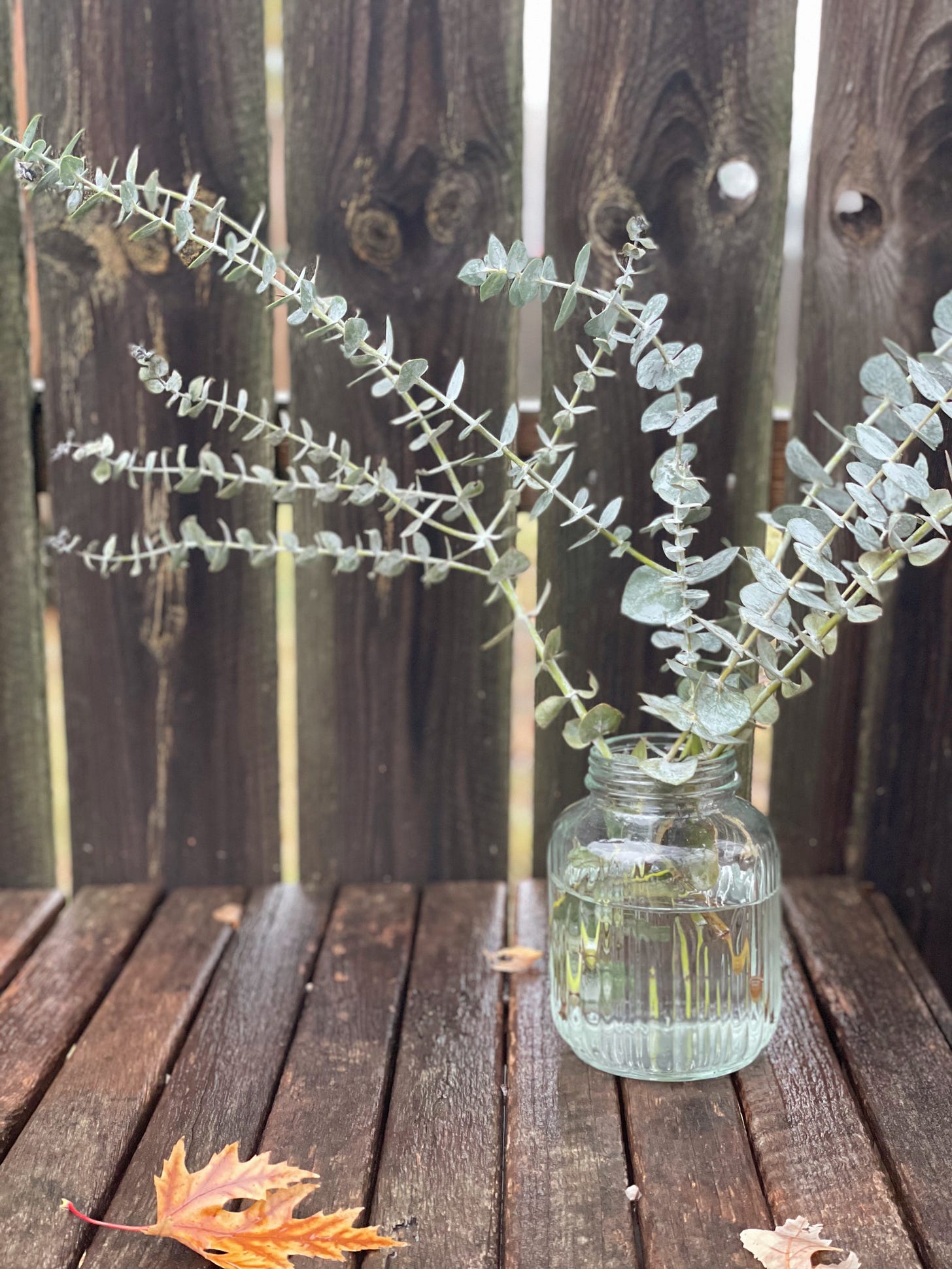
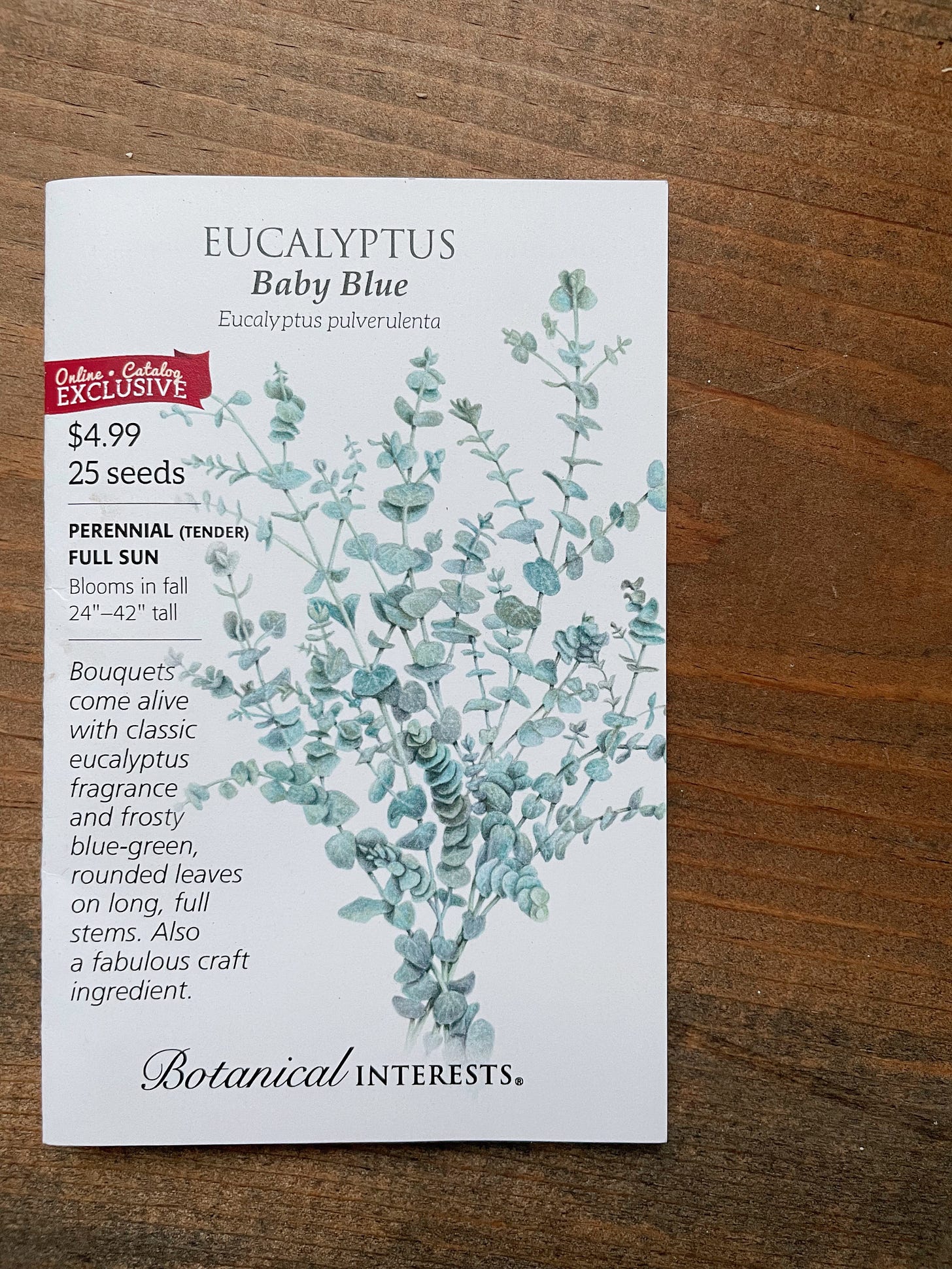
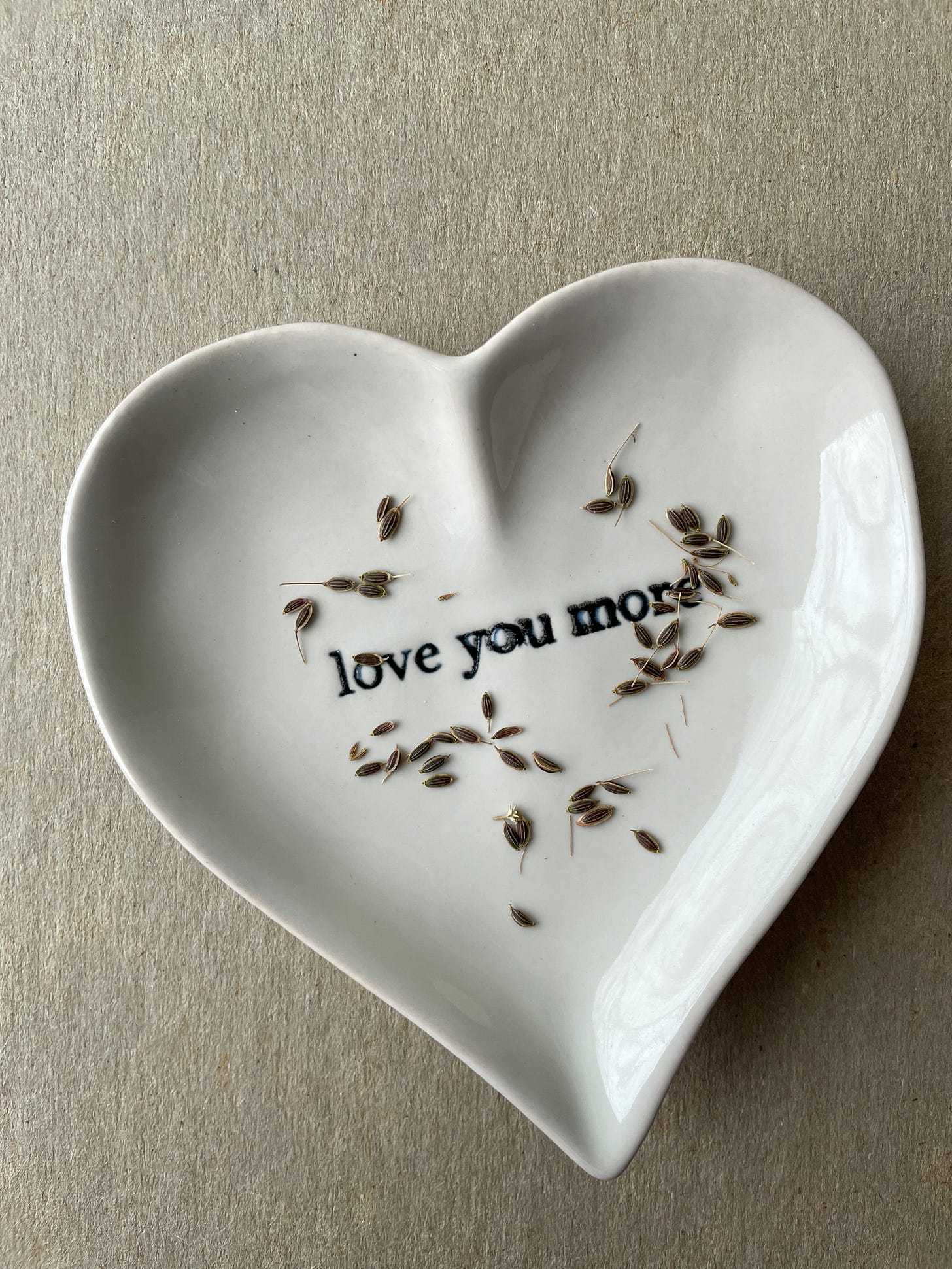
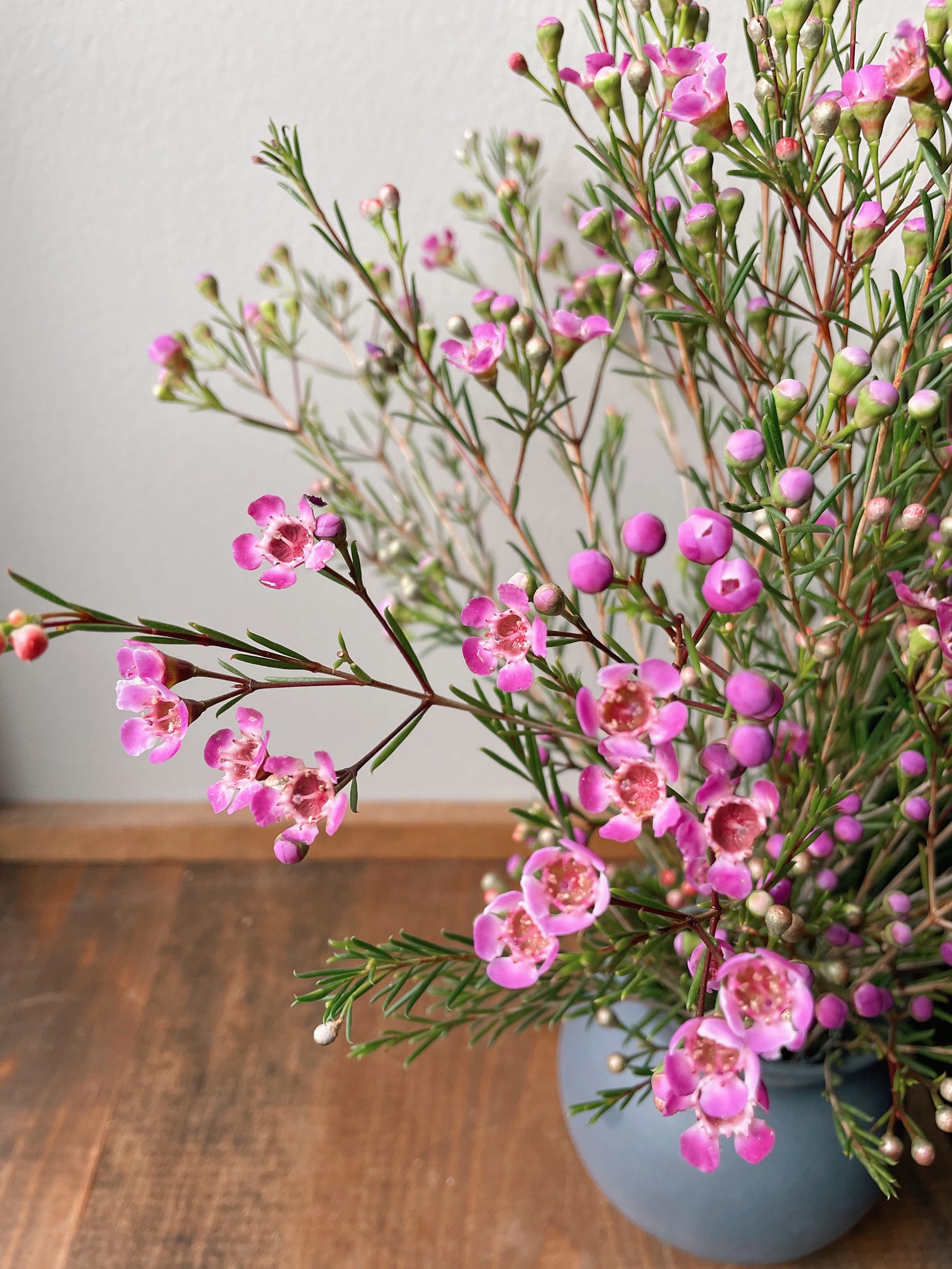
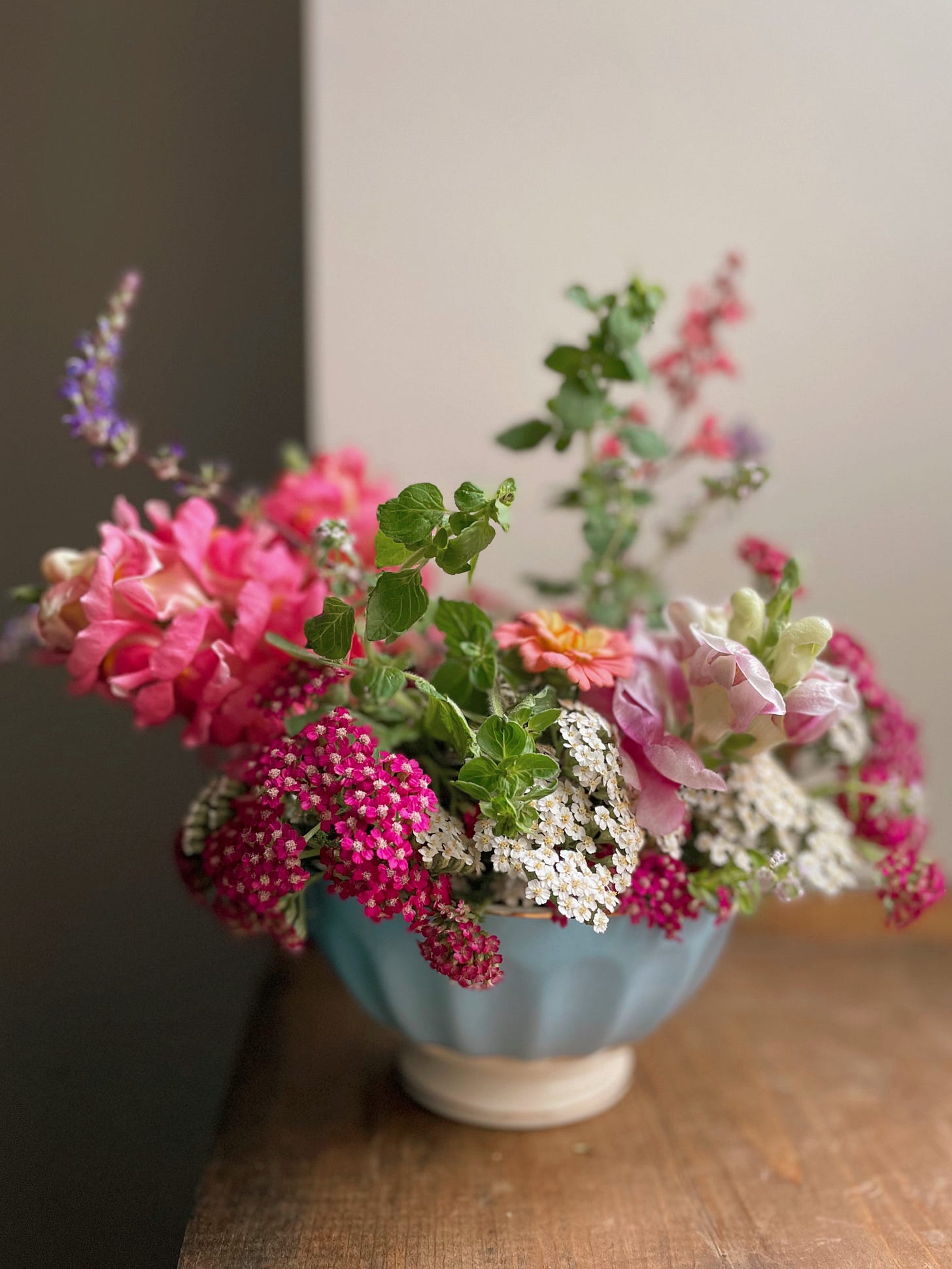
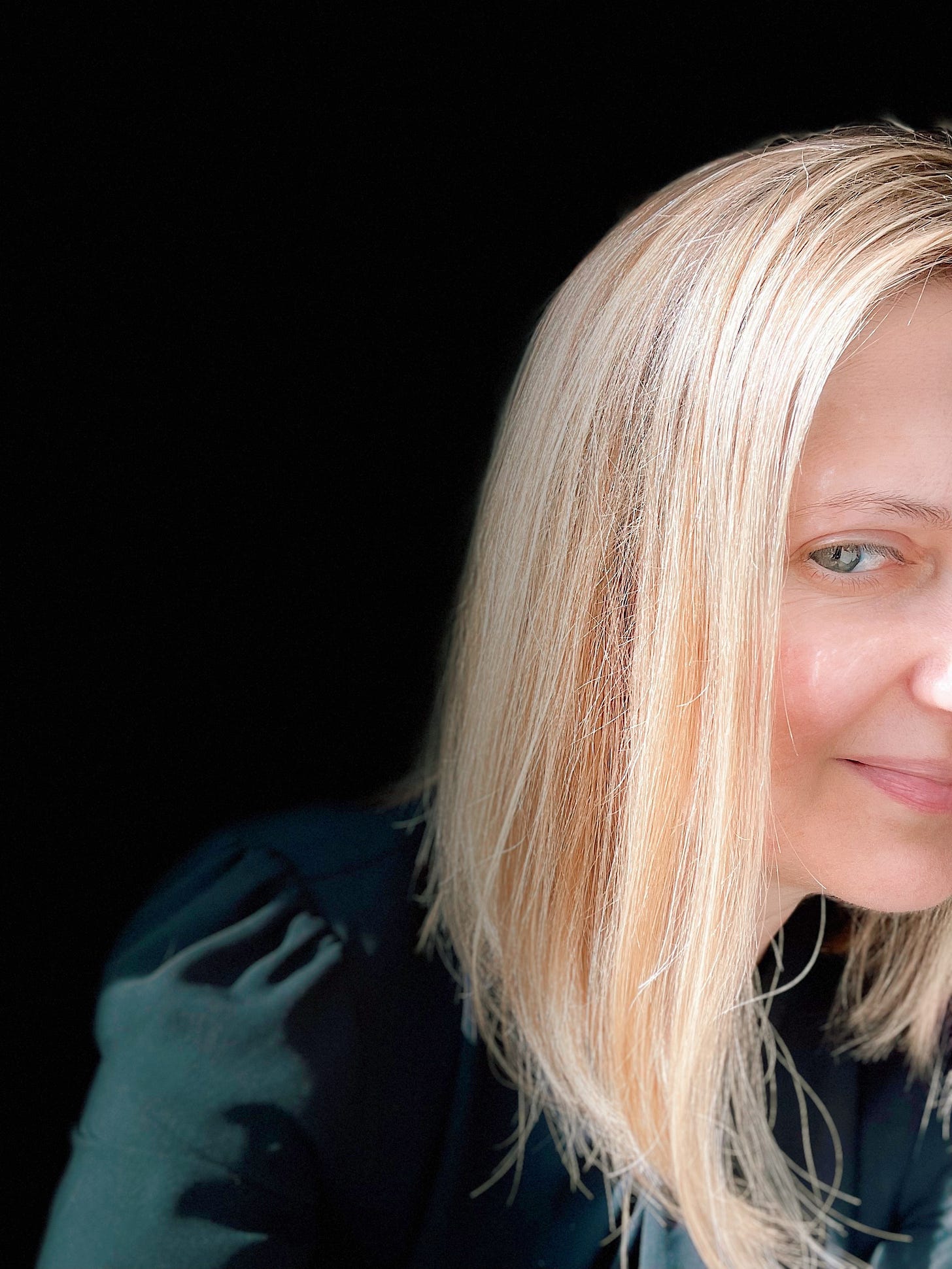
Very beautifully expressed Betsy. Thank you. Barb